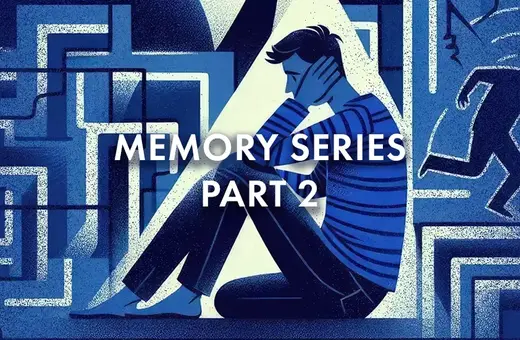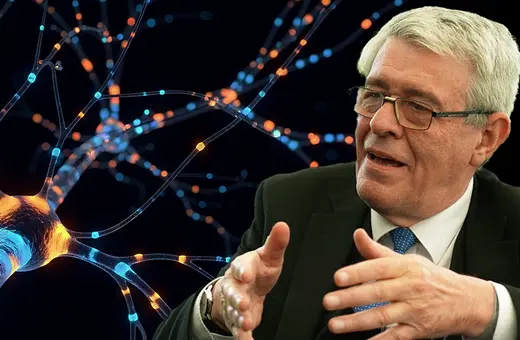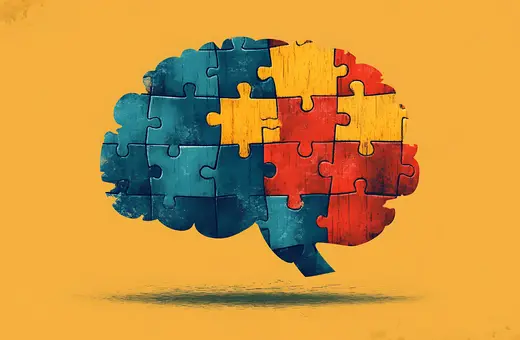From misremembering the names of our acquaintances, to failing to recall a memory accurately, for decades we have viewed forgetfulness as a shortcoming of the human mind. Yet recent neuroscience and psychology demonstrates this to be a myth, argues Scott A. Small. From creativity to intelligence and empathy to courage, the art of forgetting may be more vital to the human condition than remembering.
It used to be thought that forgetting anything — from minor things like the name of a casual acquaintance, to the more painful loss of cherished memories experienced by my Alzheimer’s Disease patients — was caused, to varying degrees, by a failure of the brain’s memory mechanisms. But new developments in neuroscience over the past decade show that this idea is deeply flawed.
 SUGGESTED READING
Remembering your self
By Muireann Irish
An understanding of recent literature on the brain demonstrates why this is the case: Neurons contain what are sometimes called nanomachines that are dedicated to the construction of new memories. But recently, science has discovered that neurons are also endowed with a completely different set of nanomachines designed for the opposite purpose: to carefully disassemble — and thus forget — components of our stored memories.
SUGGESTED READING
Remembering your self
By Muireann Irish
An understanding of recent literature on the brain demonstrates why this is the case: Neurons contain what are sometimes called nanomachines that are dedicated to the construction of new memories. But recently, science has discovered that neurons are also endowed with a completely different set of nanomachines designed for the opposite purpose: to carefully disassemble — and thus forget — components of our stored memories.
In contrast to ‘pathological’ forgetting, the forgetting that worsens as we age and in disease, normal forgetting, the forgetting we are born with, can no longer be thought of as a malfunction of our memory machinery. Instead, normal forgetting should be considered a healthy and adaptive part of our brain’s normal functioning.
___
Memory and forgetting work in unison
___
Memory and forgetting work in unison. We depend on our memory to record, to learn and to recall, and we depend on forgetting to countervail, to sculpt and to squelch our memories. This balancing act is, as it turns out, vital for our cognitive functioning, creativity and mental health.
New insights into neurology, computer science, psychology and even philosophy illustrate how normal forgetting is indeed beneficial. What clearly emerges is that memory needs to be counterbalanced by forgetting in order to successfully live in a world that is not only blooming and buzzing with information, but also with information that occasionally stings. By freeing our minds, forgetting liberates us from the drag of memories that moors us in unnecessary details, that imprisons us in pain and in looping obsessions. Forgetting, therefore, is not a nuisance, not a failure, but rather is nature’s gift that allows us to be smarter, better, and happier people.
___
If you know someone who is very creative, that person is endowed with exceptional forgetting
___
If you know someone who can’t see the forest from the trees, seems to obsess over the parts and can’t see the whole-- the big picture-- you know someone whose memory-forgetting balance is off kilter with not enough forgetting. To quote from Jorge Louis Borges, ‘to think clearly, to generalize, to abstract, we need to forget a difference’.
If you know someone whose personality is embittered with pain, who lives a lonely life of fear and trembling, who is vindictive or vengeful, or even ruthless with rage, you know someone who’s memory-forgetting balance of emotional memories is off kilter with too little forgetting. Intuitively, it makes sense that we sometimes need to “let go” of hurt and resentment to preserve close friendships and that we need to forget in order to forgive. “Letting go” is just one of the many colloquialisms that implicitly nod in recognition and gratitude toward our brain’s forgetting mechanisms.





















Join the conversation